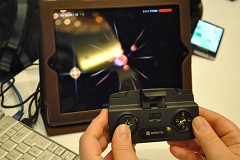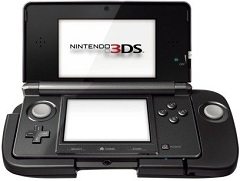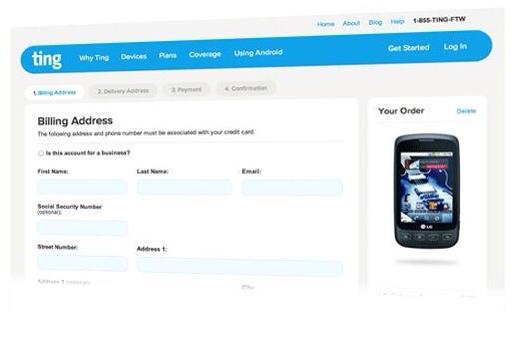 As Sony and Nintendo cling to physical buttons as a major advantage of dedicated portable gaming systems, smartphone and tablet accessory makers have come up with an answer. At a CES press event, two companies were showing off attachable game controllers for smartphones and tablets, providing the tactile feedback that’s sorely needed for precision shooting and platforming.
As Sony and Nintendo cling to physical buttons as a major advantage of dedicated portable gaming systems, smartphone and tablet accessory makers have come up with an answer. At a CES press event, two companies were showing off attachable game controllers for smartphones and tablets, providing the tactile feedback that’s sorely needed for precision shooting and platforming.
I checked out one of these controllers, Gametel, from a Sweden-based company called Fructel. The controller clamps on to an Android phone or iPhone–or pairs remotely to an iPad–and communicates via Bluetooth. It includes a directional pad, four face buttons and two shoulder buttons on top. Gametel’s built-in battery runs for about nine hours before needing a charge from either mini USB or Apple’s 30-pin connector, depending on model.







 The Galaxy Nexus is a pure Google phone, free of bloatware and designed to run Android exactly as Google envisions it. But on Verizon Wireless, that won’t be the case.
The Galaxy Nexus is a pure Google phone, free of bloatware and designed to run Android exactly as Google envisions it. But on Verizon Wireless, that won’t be the case.